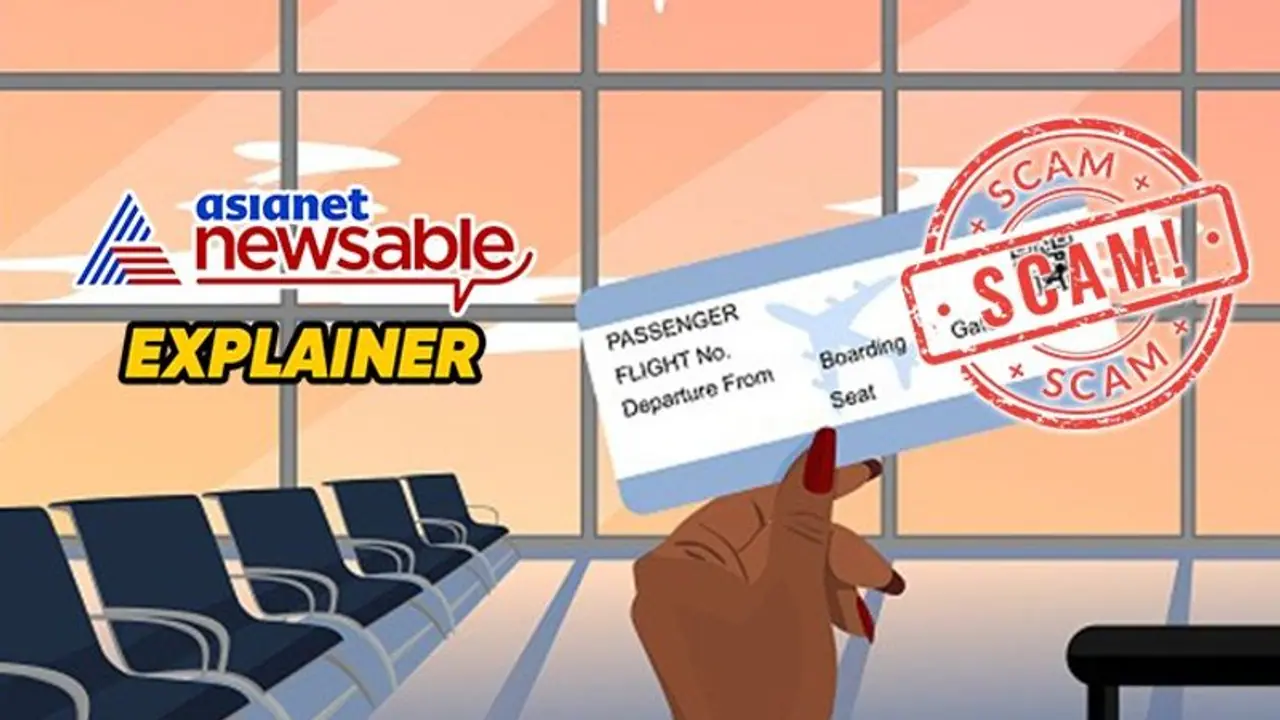Interpol recently provided insights into the intricacies of the Airline ticket scam, offering valuable tips on staying protected. Continue reading to understand the nature of the scam and learn how to safeguard yourself.
Airline ticket deals have become commonplace in recent times, with airline companies frequently providing discounts on tickets as part of special campaigns, festivals, holiday promotions, and more. Unfortunately, scammers exploit these enticing deals to deceive unsuspecting travelers. Airline ticket scams are on the rise, and as the holiday season unfolds, fraudsters are leveraging the surge in travel bookings to exploit unsuspecting victims.

Interpol recently provided insights into the intricacies of the Airline ticket scam, offering valuable tips on staying protected. Continue reading to understand the nature of the scam and learn how to safeguard yourself.
What is the Airline ticket scam and its modus operandi?
The Airline ticket scam, as the name implies, revolves around fraudulent activities related to flight tickets. Criminals employ tactics such as claiming to offer tickets at unbelievably low prices through seemingly official websites or on social networking platforms. These deceptive websites closely mimic the official online platforms of airlines, travel agencies, or agents.
As outlined in the report, criminals operating within the Airline ticket scam typically demand immediate payment, often through methods like bank transfers, virtual currencies, or even cash. Utilizing stolen credit cards, these fraudsters purchase tickets and subsequently dispatch them to unsuspecting individuals.
However, the critical question arises: How does this constitute a scam once the ticket has been delivered?
The intricacy of these scams lies in the scammers' broader intentions. Funds acquired through such schemes serve to finance more severe and potentially harmful types of scams. Additionally, in the context of the airline ticket scam, should the legitimate owner of the stolen credit card report the unauthorized transaction to the bank, the purchased ticket stands at risk of cancellation. Consequently, the airline will revoke the issued ticket, leaving the recipient both unable to travel and at a financial loss.
Indicators of Ticket Sale Fraud
Abnormally Low Ticket Prices: Exercise caution when encountering ticket prices that seem unusually low compared to other options. Fraudsters often entice victims with remarkably cheap deals to maximize their gains through deceptive schemes.
Last-Minute Departure Dates: Be on alert for departure dates scheduled within the next few days. Scammers frequently exploit the urgency of last-minute travel by selling fraudulently obtained tickets shortly before the flight. This strategy aims to capitalize on the time gap before the legitimate cardholder identifies and cancels the unauthorized transaction.
Payment Methods: Exercise caution if asked to make payments in cash or through a bank transfer. These payment methods offer minimal recourse in the event of fraud, as funds are immediately withdrawn, leaving little opportunity for recovery.
Incomplete Contact Information: Verify the legitimacy of a ticket sale by checking if the travel agency's website or social media account provides comprehensive contact details, including a physical address and a landline telephone number. Incomplete information should prompt thorough research to ensure the travel agency's authenticity and certification before committing to any purchases.
Guidelines for a Secure Ticket Purchase
Direct Booking: Opt for purchasing your airline tickets directly from the airline itself or through a reputable travel agency certified by the relevant authorities in your country.
Secure Online Transactions: Ensure that your online ticket purchases are made only through websites that have secure payment systems. Look for the "https" at the beginning of the web address as an indicator of a secure transaction environment.
Research the Travel Agency: Before making any commitments, conduct thorough research on the travel agency. Verify the legitimacy of their website, explore both positive and negative online reviews, and confirm the availability of reliable contact options in case of any issues.
Review Terms and Conditions: Prior to finalizing any transaction, carefully review the terms and conditions provided by the airline or travel agency. Pay special attention to the refund policy and associated processes to ensure a clear understanding of your rights and options in case of unforeseen circumstances.
As the holiday season unfolds, stay vigilant and informed to protect yourself from airline ticket fraud. By following these tips and exercising caution when booking your travel plans, you can significantly reduce the risk of falling prey to scams and ensure a safe and enjoyable holiday experience. Remember, if a deal seems too good to be true, it probably is a scam.
